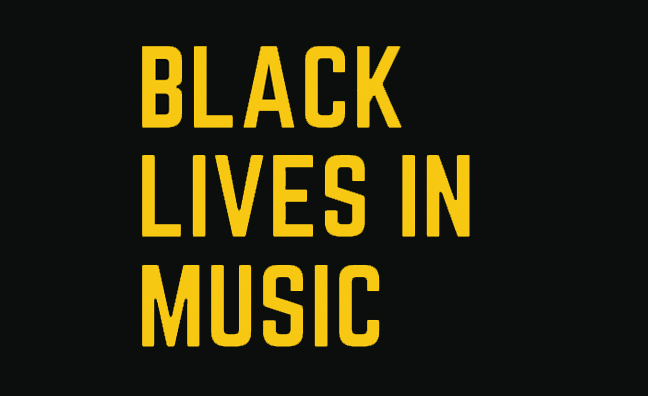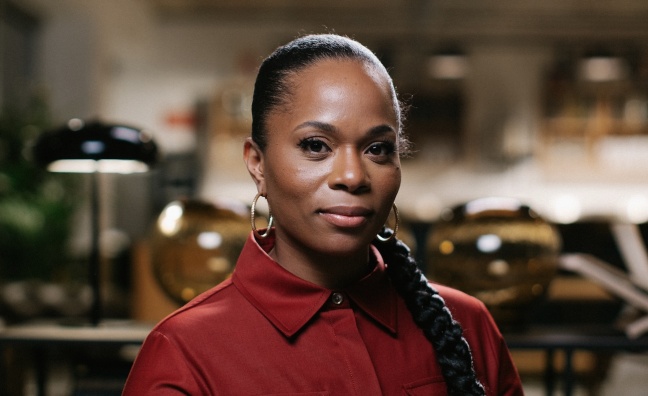Black Lives In Music launched last month with details of a groundbreaking survey that the organisation plans to change the music industry forever. Here, writing exclusively for Music Week, CEO Charisse Beaumont sets out the organisation's mission and underlines the severity of the issues facing Black professionals across the business...
With the UK government’s recent announcement denying institutional racism calling the evidence “flimsy”, never has it been more important to use data and evidenced based research to amplify the voices and experiences of Black musicians and professionals in the UK music industry.
We have recently launched the Black Lives In Music survey, which is a groundbreaking exercise and is key to understanding the issues of diversity in our industry. Some of the issues addressed in the survey include discrimination, mental health and wellbeing, economics, education and the talent pipeline. We have are aligned with music industry partners such as Help Musicians, the Black Music Coalition, and PRS Foundation’s Power Up. We urge all Black musicians and professionals to take part in our survey by visiting blim.org.uk/change. We need everyone to be a part of it; your story could change the music industry.
Black Lives in Music (BLIM) aims to address the lack of diversity at all levels and in all areas of the music industry in particular jazz and classical music. We are currently working in solidarity with over 40 like-minded groups and organisations to make change happen – together. We will recommend effective diversity actions and initiatives that cover areas of recruitment, governance, learning and training for staff at all levels. We also aim to provide groundbreaking data through two annual, national surveys on the lived experience of people of colour in the music industry and on diversity in organisations.
The Black Lives In Music Taskforce is comprised of the most esteemed executives in the UK working for diversity and equity in music including Paulette Long OBE, Yvette Griffith, Shabaka Hutchings, Orphy Robinson OBE and more.
Black Lives in Music aims to address the lack of diversity at all levels and in all areas of the industry
Charisse Beaumont
One of the reasons we started Black Lives In Music is hearing many stories of Black musicians struggling with issues where systemic racism was at the root of the problem.
There are many barriers Black musicians face in the music industry, especially Black students in music education. One student in particular comes to mind, when they felt as though were not being taught properly and given the same treatment as their fellow students. This went on for some time and despite voicing their concerns the student was consistently gaslighted and ignored. They are now in therapy as this affected their mental health because they felt their treatment was racist.
Another was after watching Former X Factor contestant Misha B’s video on instagram after saying she was left suicidal and suffering from PTSD after experiencing racist treatment on the show.
Entry into orchestras and professional ensembles is also an issue. There are many Black musicians who never win an audition even though they are top players. Many Black musicians go through blind auditions only to reach the final when they (and their race) are revealed, and they don’t get into orchestras.

This is rife across the industry even in commercial music where the feedback Black musicians receive is, ‘they don’t have the right vibe or look’, or they are the subject of micro aggressions such as, ‘I bet you can’t read music’, or, ‘you are Black therefore you’ve haven’t received a formal education, you must have learned how to play in the church or something?’ They are excellent Black musicians who have studied just as hard as everyone else. But they are not given the chance because they are Black. After being consistently told you are not good enough or you do not belong, it can affect your confidence and mental health.
Black Lives In Music exists to bring these issues of discrimination to the forefront, confront and eradicate the systemic racism that is in the music industry. We use data to inform, advocate for equality and create opportunities so all musicians can thrive.
We use data and insights to campaign for equity and we support the empowerment of Black musicians to realise their aspirations. If true equality is going to be achieved, then we must work together.
Musicians and music professionals get involved by completing the survey at blim.org.uk/change
Organisations align with us to help unify the music industry by signing our charter at blim.org.uk/charter
The Black Lives In Music film series celebrating Black Music and Culture featuring Zeze Millz, Sheku Kanneh Mason, Jake Isaac, Ayanna Witter Johnson and more drops online and on Spotify on April 6.
Charisse Beaumont
CEO
Black Lives In Music
#TheMovementContinues #CompletetheSurvey









